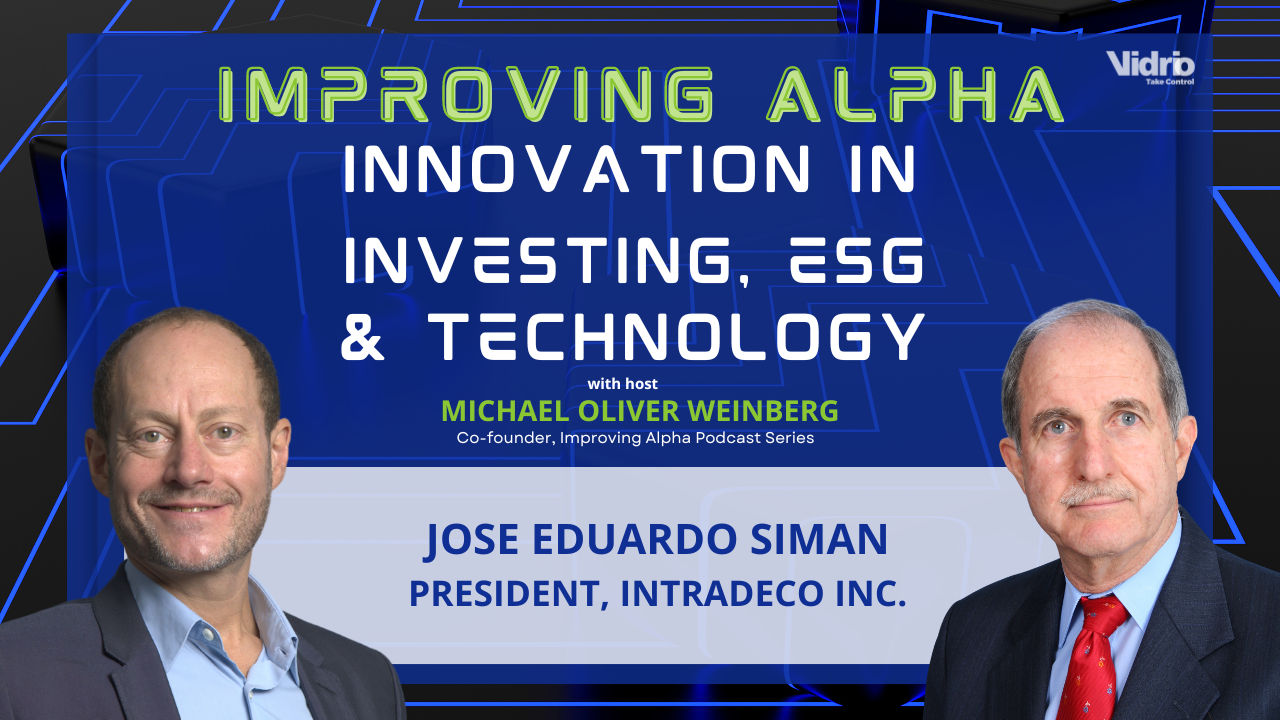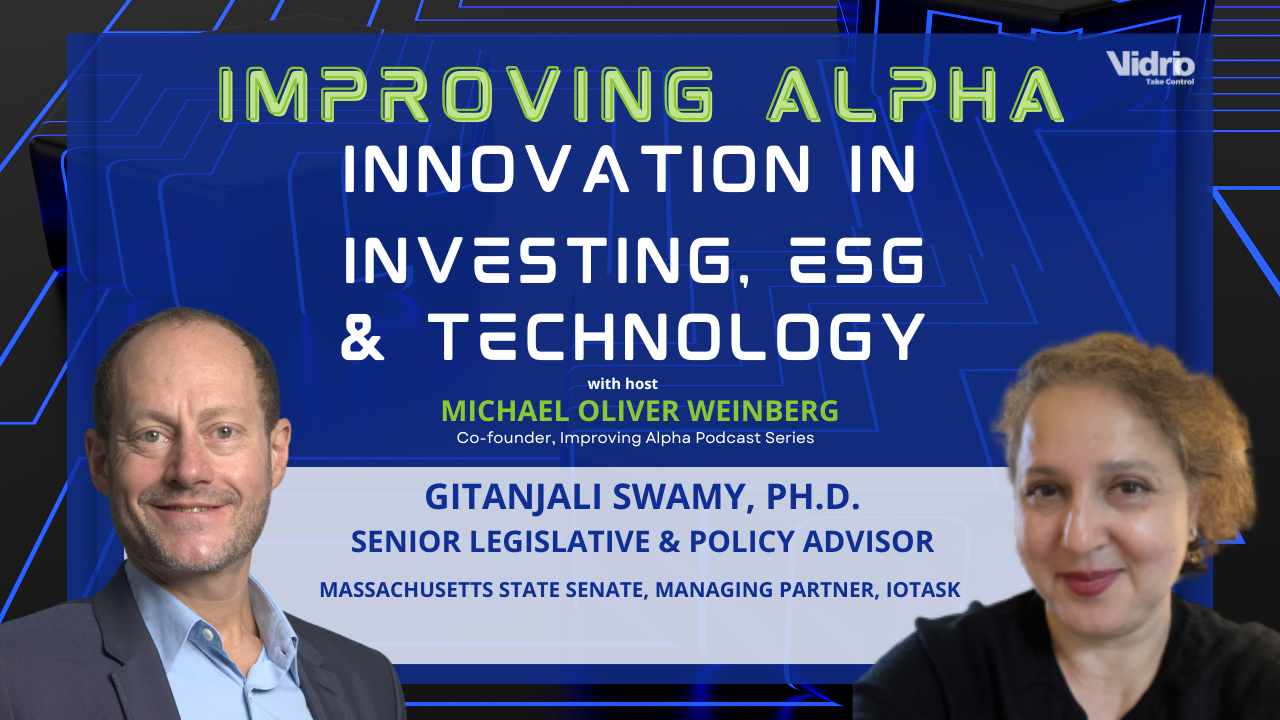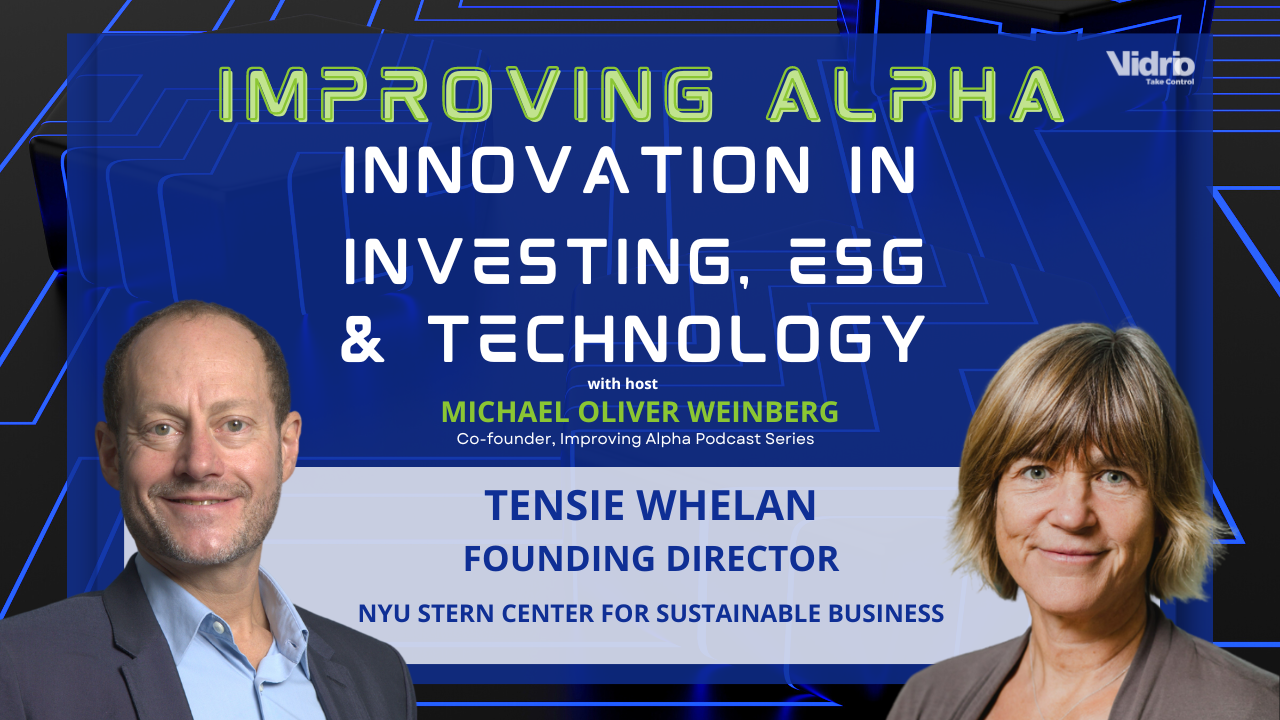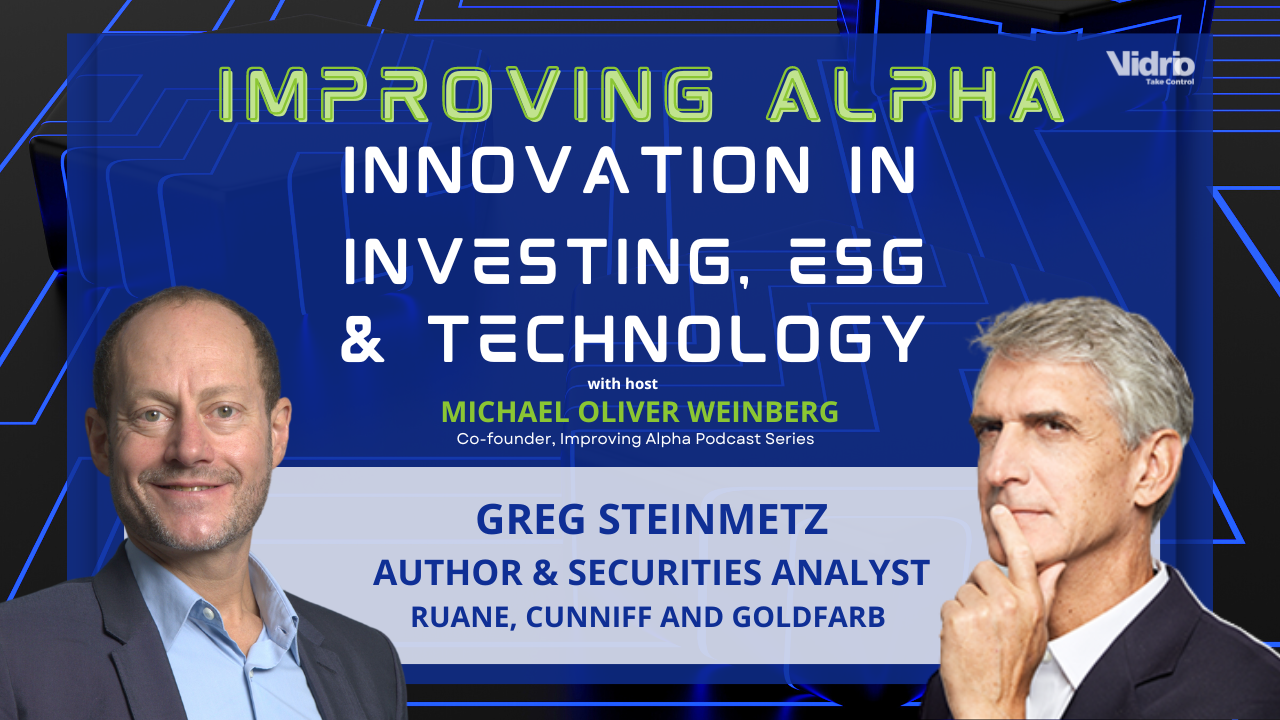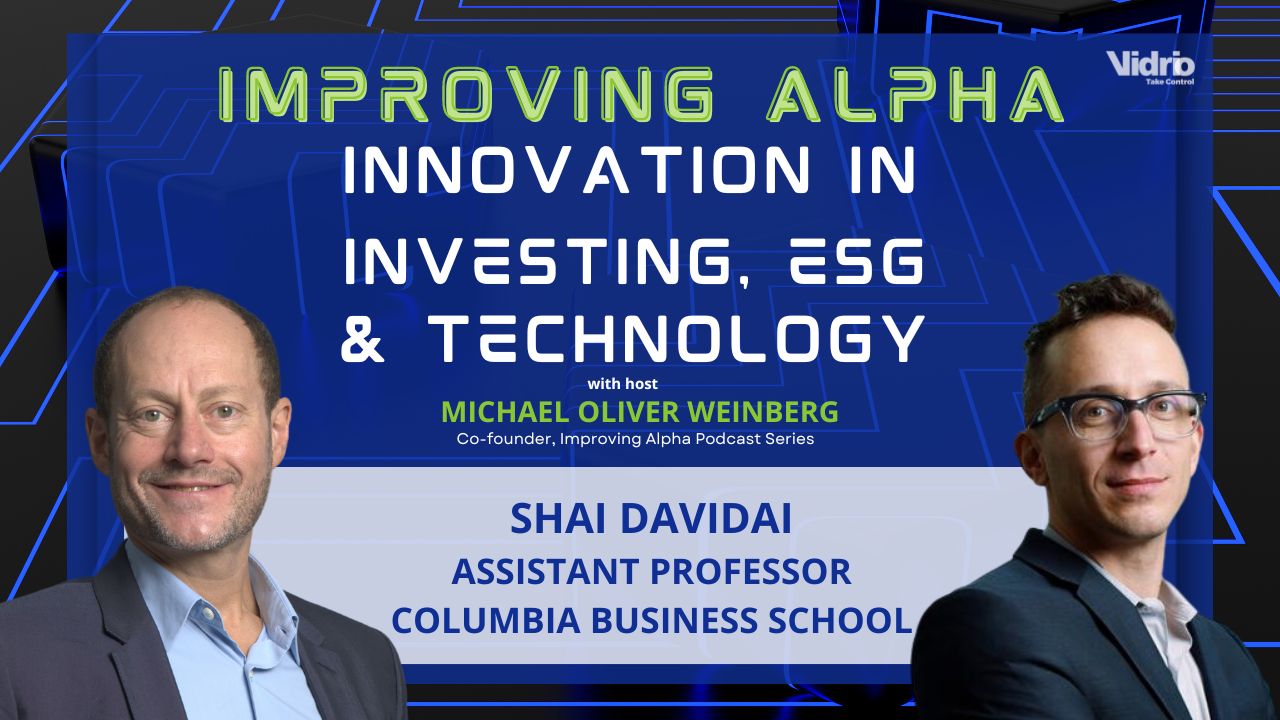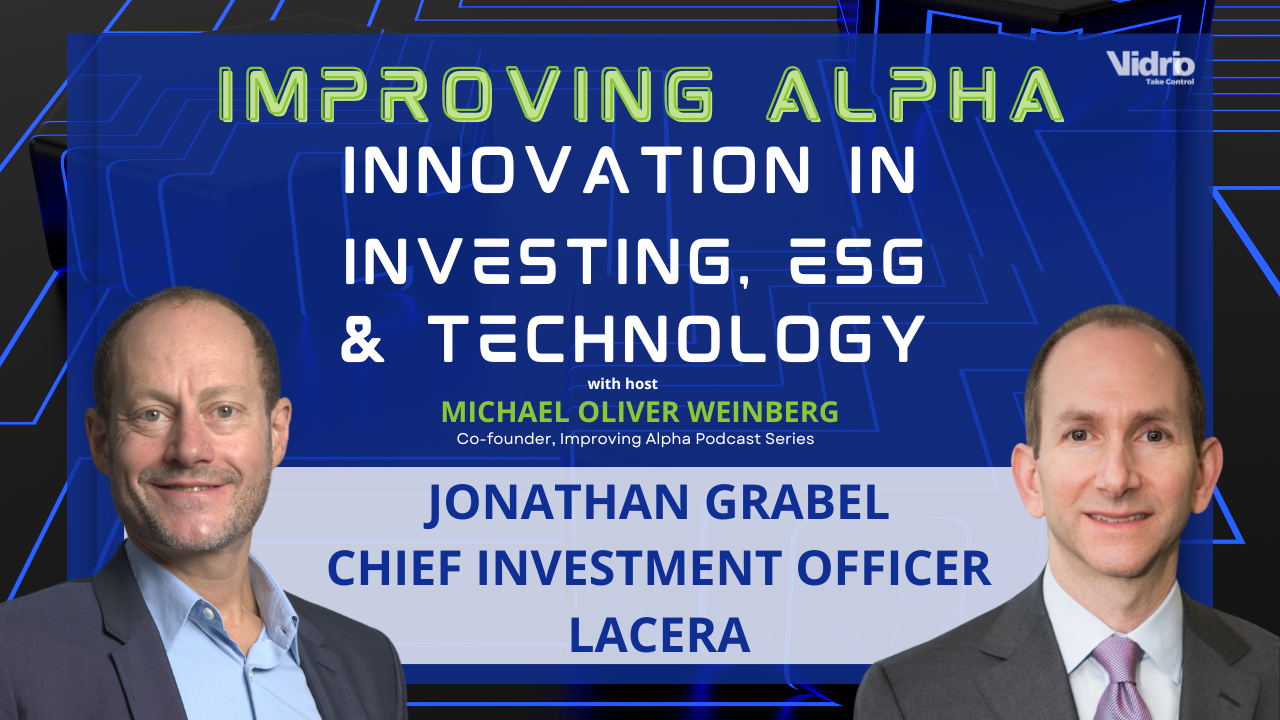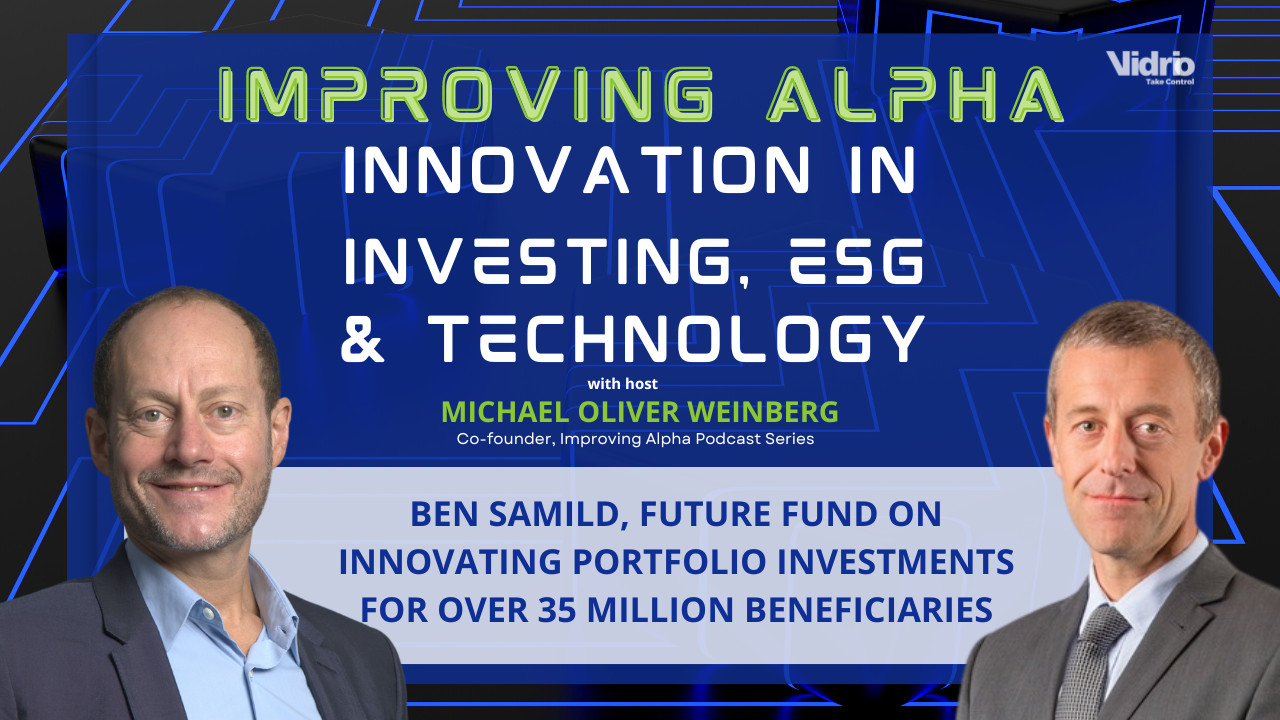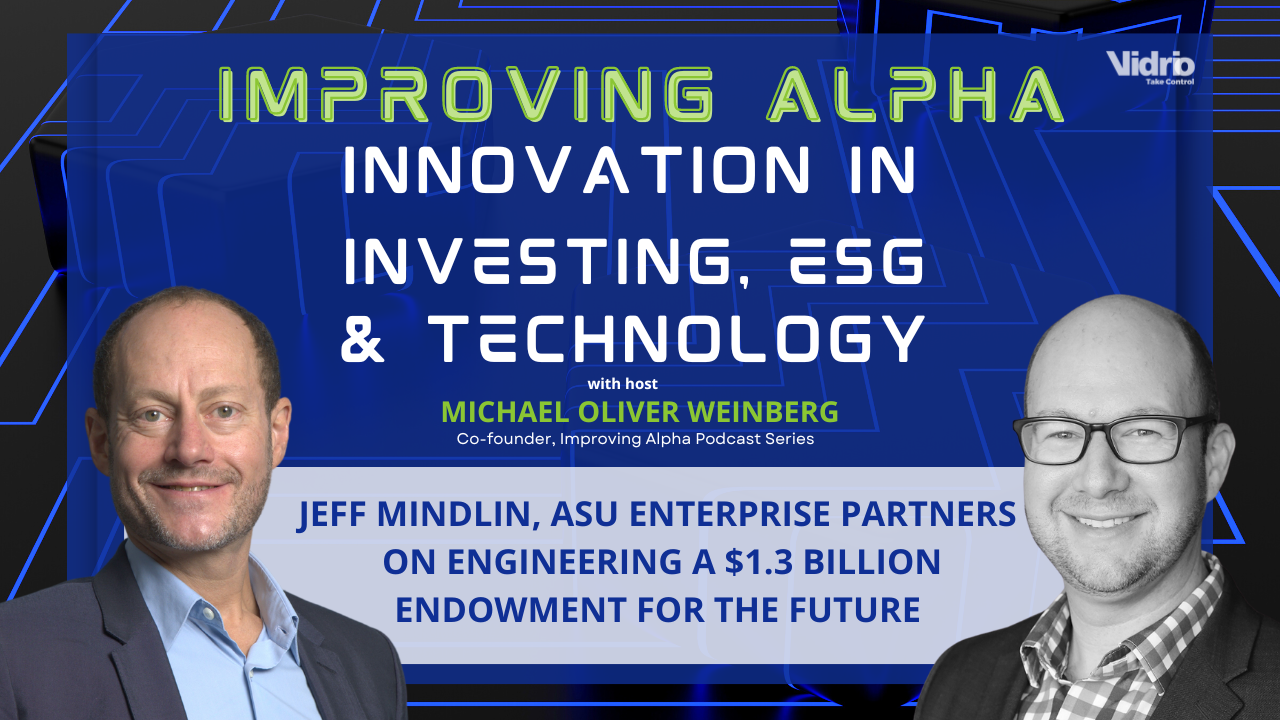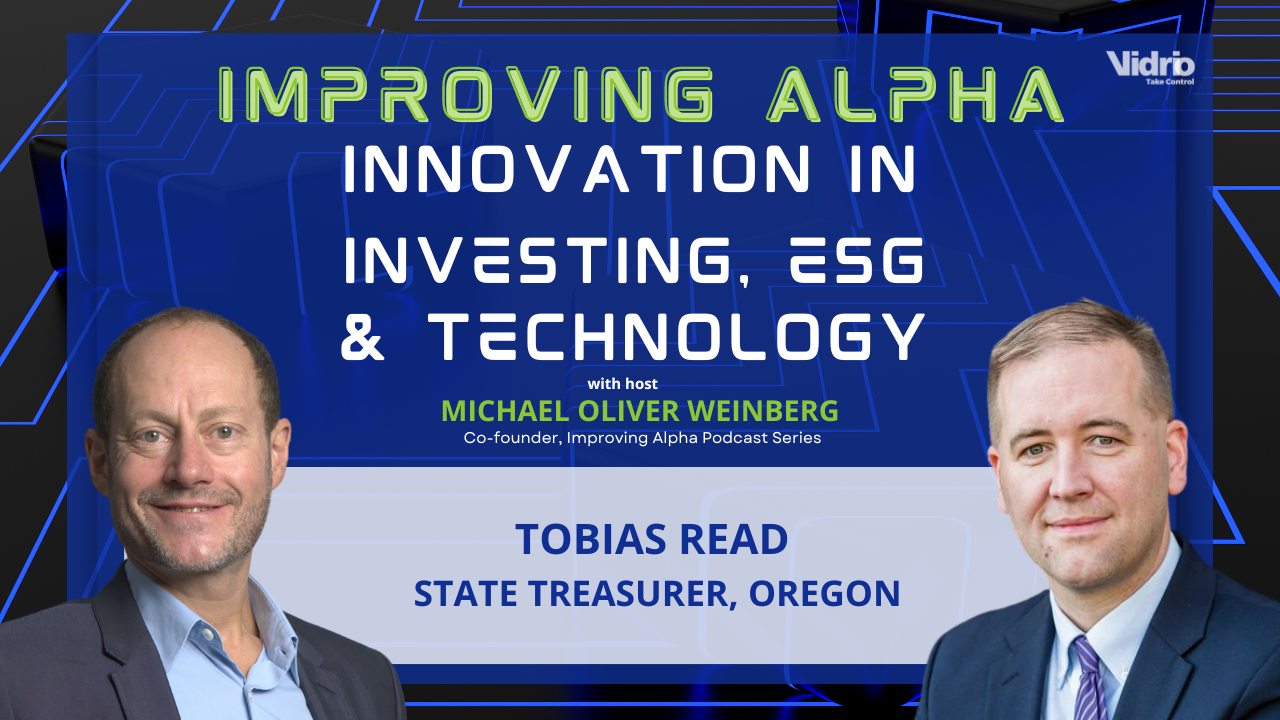
Improving Alpha: Tobias Read on Removing Political Grandstanding from Oregon’s Hybrid Pension Plan
Podcast: Play in new window | Download | Embed
Warren Buffet has been quoted in the past about what happens to investors when the tide goes out and we see who’s been swimming naked. This quote can be aligned quite well to the environment that many institutional investors find themselves in today, given inflation, net zero regulations, fiduciary responsibilities, and more.
In our latest episode, Michael Oliver Weinberg is joined by Tobias Read, State Treasurer, Oregon, where Tobias discusses the approach that his team has taken towards innovation, why running a pension isn’t simply about just maximizing a return number, or why a pension plan can’t do it alone when it comes to climate change regulations.
Additional listener highlights include:
- early takeaways from the public and private sector and how that grew Tobias’ interest in the ways businesses and government interact with each other.
- with assets under management at $100 billion representing 400,000 members, we learn how Tobias looks at asset allocation for the future of the plan.
- even though Oregon was the first state pension in the country to go into private equity investing, what does that mean for the future deployment of resources given current market conditions?
- how Tobias considers the debate between divestment, exclusion and engagement when it comes to ESG asset allocation and the challenges in moving the plan to a net zero position by 2050.
- And more
About Our Host:
To learn more about our host visit: https://www.vidrio.com/blog/improving-alpha-podcast-tobias-read-oregon-hybrid-pension
About Tobias Read:
Tobias Read understands that financial empowerment, wise investments, and sound management are foundational to the quality of life and economic opportunities for Oregonians, and key to the long-term vitality of our state.
Elected Oregon’s 29th State Treasurer in 2016, Tobias is a collaborative problem solver who draws upon his management, political, and finance policy experience to serve Oregonians as Treasurer.
He worked in the U.S. Treasury and as a liaison between designers, engineers, and manufacturing units for Nike Inc. In 2006, he was elected to the Oregon House of Representatives, where he served a decade and championed legislation to invest in public education, improve state financial management, finance critical infrastructure improvements, and help Oregonians save for a more secure future.
As State Treasurer, Tobias knows that financial confidence helps Oregonians get ahead, no matter where they live. He supports efforts to connect Oregonians with their unclaimed property, improve financial education, encourage Oregonians to invest in themselves, and promote smart and accountable government reforms that improve transparency and stretch dollars for taxpayers and beneficiaries of public trust funds.
The State Treasurer is a constitutional officer and the state’s navigator for sound and responsible financial policy. The Treasurer protects the state’s credit ratings, sits on the Oregon Investment Council and State Land Board, and oversees public investing, banking, bonding, and financial empowerment programs. Those include the Oregon 529 Savings Network, which allows families to save for higher education, job training, and disability-related expenses, and the Oregon Retirement Savings Plan. The Treasury manages an investment portfolio worth roughly $106 billion.
Tobias earned his bachelor’s degree from Willamette University and his MBA from the Michael G. Foster School of Business at the University of Washington. He has been a volunteer for Start Making a Reader Today (SMART), a youth sports coach, a member of the Willamette University Athletic Director’s Advisory Board, and a founding board member of Hoopla, Oregon’s largest three-on-three charity basketball tournament.
The information covered and posted represents the views and opinions of the guest and does not necessarily represent the views or opinions of Vidrio Financial, and/or our host, Michael Oliver Weinberg. The Content has been made available for informational and educational purposes only. The Content is not intended to be a substitute for professional investing advice. Always seek the advice of your financial advisor or other qualified financial service provider with any questions you may have regarding your investment planning.
